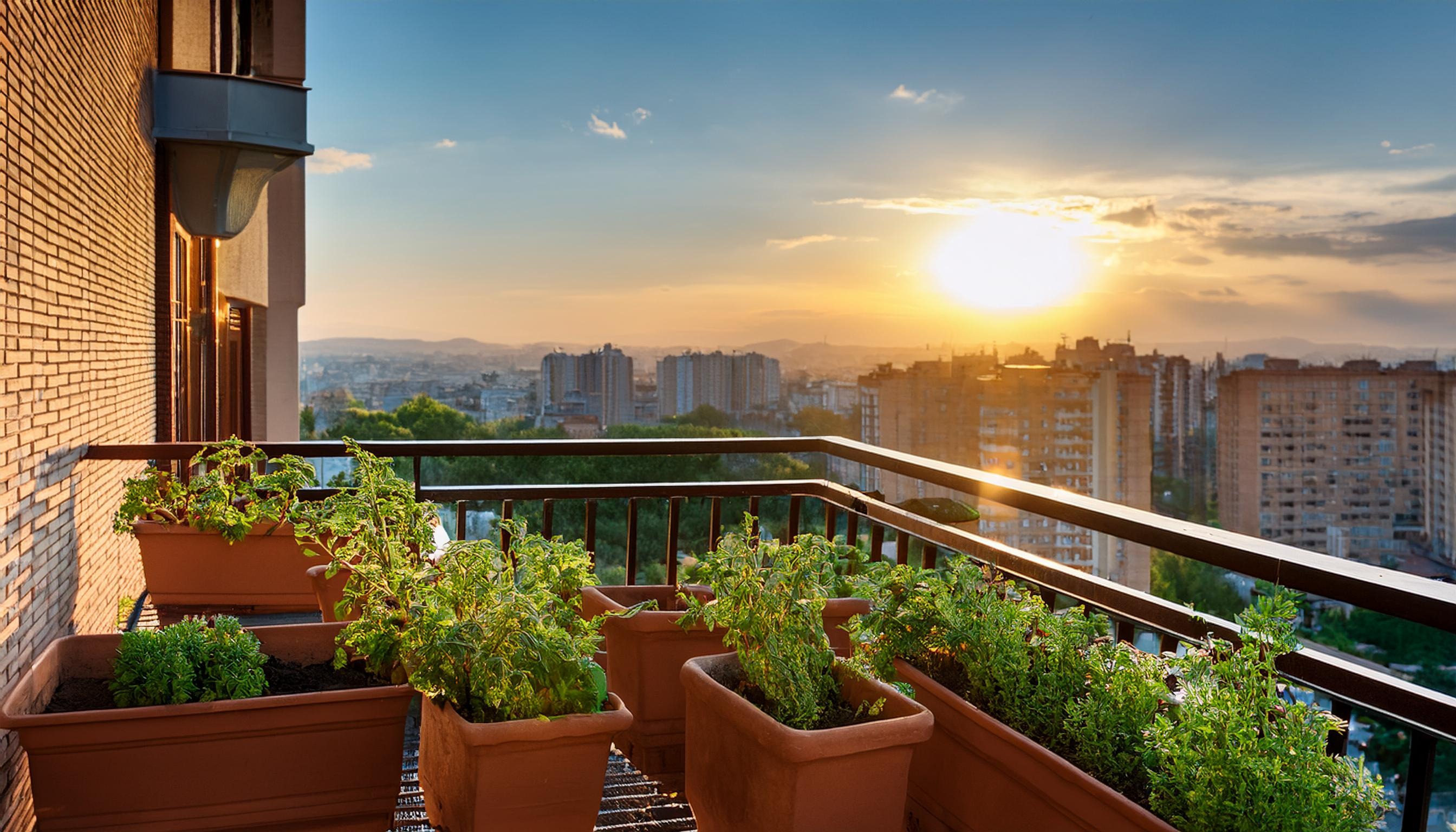Planters on Balconies: Can California Landlords Say "No" to Greenery?

Table of Contents
Picture this: you’re a tenant in sunny California, eager to transform your balcony into a lush, green oasis. You’ve got visions of vibrant flowers, fragrant herbs, and maybe even a miniature citrus tree. But then, a dreaded email from your landlord arrives: “No planters allowed on balconies.”
Suddenly, your green thumb dreams are crushed. But wait, is this even legal? Can a landlord in California really dictate what you can and can’t put on your balcony? Let’s delve into the legal landscape and explore the delicate balance between a landlord’s right to protect their property and a tenant’s desire for a personalized outdoor space.
The Landlord’s Perspective: Why the Fuss Over Planters?
Before we jump to conclusions, let’s understand why some landlords might be hesitant about balcony planters:
- Weight Concerns: Excessive weight from large planters or soil can put stress on the balcony structure, potentially leading to damage or even collapse. This is especially concerning in California, where balconies must comply with stringent safety regulations like SB 326 and SB 721.
- Water Damage & Leaks: Improperly maintained planters can lead to water overflow, causing leaks and damage to the balcony or even the units below.
- Aesthetics & Property Value: Some landlords may worry that a profusion of mismatched planters could detract from the building’s overall aesthetic appeal and potentially impact property value.
The Tenant’s Perspective: But It’s My Balcony, Right?
As a tenant, you might feel that your balcony is an extension of your living space, a place where you should have the freedom to express yourself and create a personalized oasis. After all, you’re paying rent for that space, aren’t you?
Contact DrBalcony for a professional inspection!
Ensure the safety of your balcony and living space with DrBalcony - We're a Tech Engineering firm that specializes in California SB326 & SB721 balcony inspections. Over 300+ completed projects in California.
Request A Free EstimateClick To CallThe Legal Gray Area: Balancing Rights and Responsibilities
The truth is, the legality of restricting planters on balconies in California isn’t black and white. It falls into a bit of a gray area, where landlords’ rights to protect their property intersect with tenants’ rights to quiet enjoyment of their rented space.
Here’s a breakdown of the key considerations:
- Lease Agreement: Your lease agreement is the first place to look. If it explicitly prohibits planters on balconies, the landlord likely has the right to enforce that restriction.
- Safety Concerns: If the landlord has legitimate concerns about the structural integrity of the balcony or potential water damage, they may have grounds to restrict or regulate the use of planters.
- Reasonable Restrictions: Even without an explicit lease clause, landlords can often impose reasonable restrictions on balcony use, as long as they’re not arbitrary or discriminatory. For example, they might limit the size or number of planters allowed or require the use of drip trays to prevent water damage.
Navigating the Conflict: Tips for Landlords and Tenants
- Open Communication: The best approach is always open and honest communication. If you’re a tenant who wants to add planters, discuss it with your landlord beforehand. If you’re a landlord with concerns, clearly communicate your expectations and any restrictions to your tenants.
- Compromise and Collaboration: Seek solutions that address both parties’ needs. Perhaps smaller, lightweight planters or the use of drip trays can alleviate the landlord’s concerns while still allowing the tenant to enjoy some greenery.
- Professional Inspections: If there are concerns about the balcony’s structural integrity or potential damage, a professional inspection can provide objective data and help guide decision-making.
At DrBalcony, we understand the delicate balance between landlords’ and tenants’ rights. Our comprehensive balcony inspections can help identify any structural or safety concerns, providing valuable information for both parties to make informed decisions.
We also offer expert guidance on balcony maintenance and repairs, helping you create safe and enjoyable outdoor spaces that comply with California’s regulations.
Whether you’re a landlord or a tenant, don’t let balcony disputes escalate into conflict. Contact DrBalcony today for a professional inspection and proactive solutions that benefit everyone.
Contact DrBalcony for a professional inspection!
Ensure the safety of your balcony and living space with DrBalcony - We're a Tech Engineering firm that specializes in California SB326 & SB721 balcony inspections. Over 300+ completed projects in California.
Request A Free EstimateClick To CallFAQ Section: Top Questions & Answers
My property is well-maintained. Do I really need SB-326/SB-721 inspections?
YES! Even with excellent maintenance, hidden issues can develop due to construction errors, material flaws, or severe weather exposure. Inspections are about ensuring those don’t turn into major problems.
Our balconies were inspected a few years ago – isn't that enough?
Unfortunately, no. California laws mandate inspections on a set schedule, often every 6 years. Deterioration can happen quickly, making regular assessments essential.
Can I use my regular handyman for the balcony inspection?
It’s not recommended. Unless they hold specific licenses (architect, structural engineer, etc.) their inspection won’t be considered valid for SB-326/SB-721 compliance.
What if the inspection uncovers major issues?
First, don’t panic! Early detection often means less extensive (and expensive) repairs are needed. Work with your inspector to prioritize fixes, and explore if they offer repair services for a streamlined solution.
I'm worried about the cost of inspections. Are there any resources to help?
Start by getting detailed quotes from multiple companies. Factor in that proactive inspections help you avoid even bigger costs down the line due to neglected problems. Some property management associations offer guidance on budgeting for balcony compliance.
- List Item #1
- List Item #1
- List Item #1
- List Item #1
- List Item #1
I started off by doing 1 inspection with them back in June because I knew it needed work done. Now, they’ve completed 2 of my properties and have 2 more inspections coming up this month. All great so far! They’re great at keeping me updated
- List Item #1
- List Item #1
- List Item #1
- List Item #1
- List Item #1
I would like to share the fact that this company has been extremely honest and helpful with this challenging project. Balcony and walk way repairs are very expensive, so you want the very best professionals next to you
- List Item #1
- List Item #1
- List Item #1
- List Item #1
- List Item #1
Greg was very helpful in explaining the entire process. They walked me through everything and helped me keep both of my properties in compliance!

